Israel Won’t Face Any US Restrictions If It Acts Against Iran - Ambassador
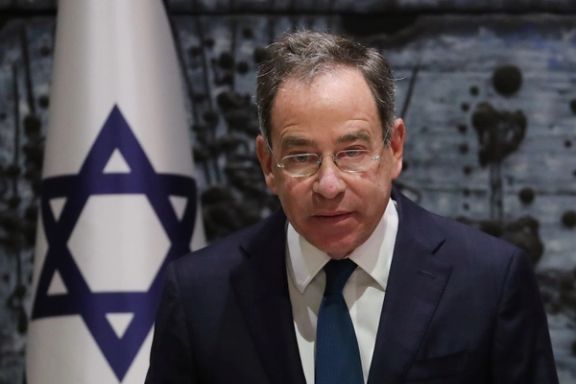
The US envoy to Israel says the country can do whatever it needs against Iran and would not face any restrictions from US regardless of the result of nuclear talks.

The US envoy to Israel says the country can do whatever it needs against Iran and would not face any restrictions from US regardless of the result of nuclear talks.
Ambassador Tom Nides told Israel’s Channel 12 news on Thursday, “Israel can do and take all the steps it needs to take to protect the state of Israel”.
He added that “If we have a deal, the Israelis’ hands are not tied. If we don’t have a deal, the Israelis’ hands are certainly not tied”, noting that “We’re not going to tell the government what to do”.
About briefing Israel on the latest developments of the Vienna nuclear talks to revive the 2015 Iran nuclear deal, the ambassador pointed out, “The Israelis know very clearly exactly what is going on. I’m not suggesting they necessarily like it always, but there are no secrets here”.
During a joint press conference with US Secretary of State Antony Blinken on Sunday, Israeli Foreign Minister Yair Lapid said, "We have disagreements about a nuclear agreement and its consequences, but open and honest dialogue is part of the strength of our friendship. Israel and the United States will continue to work together to prevent a nuclear Iran”.
There are media reports that an air defense pact between Israel and friendly regional countries is in the works to confront threats posed by Iranian drones and missiles.
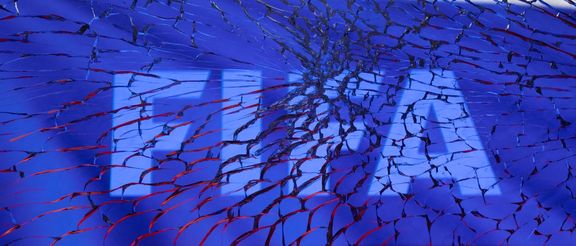
The United States Senate Foreign Relations Committee has called on FIFA, the world football authority, to hold the Iranian Football Federation responsible for barring women from a match Tuesday.
The committee’s twitter account carried the message Thursday, deploring “Iran’s attack on women peacefully protesting its discriminatory stadium ban...” Security forces denied women entry into a stadium in Mashhad, north-east Iran, to watch a FIFA World Cup qualifier between Iran and Lebanon, reportedly using pepper spray to disperse them.
Although Iran won the game 2-0, thereby qualifying for the World Cup in Qatar, some Iranians are urging FIFA to bar the country from the tournament, with #Fifabaniri (FIFA ban Islamic Republic of Iran) and other hashtags rising to the top of most-used hashtags in Persian-language Twitter.
In a letter to FIFA's deputy secretary general, Mattias Grafstrom, of the United for Navid group set up after the execution of wrestler Navid Afkari in September 2020, backed the call, alleging Iran was practicing "gender apartheid" and continuing “to violate the Olympic Charter and FIFA regulations."
A campaign inside Iran sees some former and current members of Iran's national team pledging not to enter stadiums as long as women are not allowed. “I hope that from now on during home matches, our dear women can also spectate so we can make them happy as well,” Alireza Jahanbakhsh, an Iranian international who plays club football in the Netherlands, told state television.
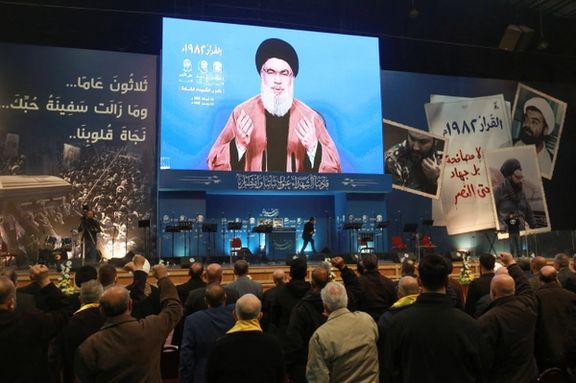
The Washington Free Beacon reports a draft law requiring the US government to explain how sanctions relief would affect Tehran’s dealings with Hamas and Hezbollah.
In the latest attack on efforts to revive the 2015 Iran nuclear deal, the JCPOA (Joint Comprehensive Plan of Action), House representatives Ronny Jackson, a Republican, and Stephanie Murphy, a Democrat, and 19 others called the Palestinian and Lebanese militant groups “Iranian proxies…waging operations against Israel.”
The Beacon reported that the “coalition of lawmakers are concerned that sanctions relief for Iran will embolden both terror groups and lead to an increase in terror strikes on Israel, which saw a wave of attacks that killed 11 citizens in the last two weeks.”
Two of these three attacks were carried out by ‘Israeli Arabs,’ Palestinians with Israeli citizenship, and one by a Palestinian from the occupied West Bank. While none was linked to the groups cited by the US legislation, Israeli has gone onto security alert fearing a repetition of last year’s ethnic clashes.
However, both Hezbollah and Hamas have praised the attacks as operations of “martyrdom” and both have long track records of organizing and carrying out attacks against Israeli civilians.
The Beacon quoted Jackson that “the United States cannot afford to ignore the threat posed by Iran-backed proxies.” It reported that AIPAC, the American Public Affairs Committee, was backing the bill, which would also require the Defense Department to report to Congress on other “Iran-backed entities,” including the Popular Front for the Liberation of Palestine, the Badr Organization (which is Iraqi), and Yemen’s Ansar Allah, widely known as the Houthis.
Unfrozen funds
The Beacon claimed that a provision in the bill that federal funds not “bolster…the listed terror groups” could “interfere with the Biden administration’s efforts to unfreeze Iranian funds that may be funneled to its proxy groups.”
Restoring the JCPOA, under discussion in Vienna for a year, would require the US lifting ‘maximum pressure’ sanctions levied by the Trump administration in 2018 on leaving the JCPOA. These threaten punitive action against third parties dealing with Iran’s financial sector or buying its oil, leaving billions owed Iran ‘frozen’ by banks wary of US action, especially in Asia.
While some argue that President Joe Biden requires Congressional support for JCPOA revival no more than Trump did for leaving it, Representative Michael McCaul, the lead Republican on the House Foreign Affairs Committee, told the Beacon he was hopeful eight Democrats would vote with the Republicans opposing the JCPOA.
State Department spokesman Ned Price on Friday repeated the administration’s arguments that Trump’s sanctions were ineffective in moderating Iran’s behavior, saying that Tehran-inspired attacks on US and its allies increased after 2018. While his claim about attacks on US interests is true, Iran was embroiled in the Syrian civil war, especially in 2015-2017, fighting to save Bashar al-Assad’s government, and entrenching itself on the Israeli border.
McCaul said that with Congressional mid-term elections due November “if Republicans take the majority, they will move to reimpose sanctions on Iran and nullify the terms of any deal Biden inks.”
The Beacon suggested that “with the ongoing war in Ukraine generating anti-Russia sentiment, provisions in the nuclear deal that empower and enrich Moscow will be a hard sell on Capitol Hill.” Russia and Iran signed an agreement in 2014 over nuclear power at Bushehr, which over the project’s life would see Tehran pay $10 billion.
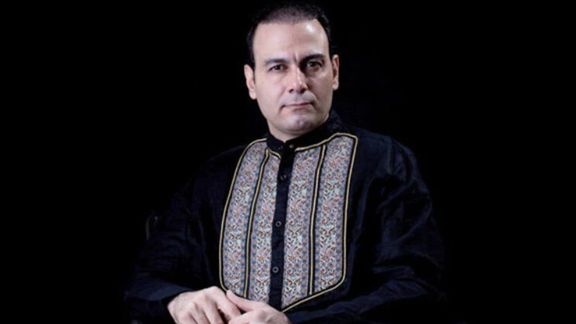
The refusal of the United States to allow entry to Iranian vocalist Alireza Ghorbani was probably due to his having been in Iran’s Revolutionary Guards.
The Islamic Revolutionary Guards Corps (IRGC) has been listed by the United States since 2019 as a ‘foreign terrorist organization,’ a designation otherwise reserved for non-state bodies. Ghorbani, a Canadian resident, was travelling Friday to perform at a concert marking Noruz (Nowruz), Iranian New Year, at Costa Mesa’s Segerstrom Center, California, Saturday when he was questioned by agents at a Toronto airport and denied entry to the US.
“He got on his flight, sat on his seat and some [US immigration] officers got on the flight and took him out,” Alireza Ardekani, executive director of Los Angeles-area nonprofit Farhang (culture) Foundation, joint host of the event, told the Los Angeles Times.
“They interrogated him for nearly four hours and eventually told him his visa was going to be canceled and he could no longer travel to the US,” Ardekani said Tuesday, adding that he had learned that Ghorbani’s denial of travel likely stemmed from the 49-year-old’s service decades earlier in the IRGC.
The Iranian Canadian Congress (ICC) in a statement on Twitter said it was concerned at Ghorbani's detention and interrogation and had brought the issue of the US refusing entry to Iranian-Canadians conscripted by the IRGC to the attention of Canadian government officials on many occasions.
"We continue our efforts to end discriminatory behavior against our community," the statement said. While Canadian permanent residents may need a non-immigrant visa to enter the US, the US State Department stipulates that “members of a designated FTO, if they are aliens, are inadmissible to and, in certain circumstances, removable from the United States.”
The IRGC is part of the Iranian Armed Forces, which also includes the ‘regular’ Army and Law Enforcement, all under the overall command of Supreme Leader Ali Khamenei. The three branches each includes young men serving a 21-month compulsory military service
Wider worry
Around one-fourth of IRGC's 190,0000 are conscripts and Ghorbani, who like many other young men do military service after graduating from high school, was probably assigned to the IRGC when drafted three decades ago.
Masih Fouladi, deputy director of the Los Angeles chapter of the Council on American-Islamic Relations, told the Los Angeles Times, that the case illustrated a wider worry for Iranians in north America.
“They may have served 20, 25 or 30 years ago, and many of them may have served in clerical roles, nothing that had anything to do with combat,” he said. “And now they’re facing obstacles to residency status… I think [the designation] was intended to marginalize Iran’s government, but the truth it is has really impacted Americans here who identify as Iranian.”
Ghorbani has performed in many countries including with the Vancouver Opera Orchestra in 2019. Among international awards, he took the silver medal of the Global Music Awards in 2020 for outstanding achievement. Singer Sina Sarlak filled in for Ghorbani Saurday, performing “Ey Iran!”
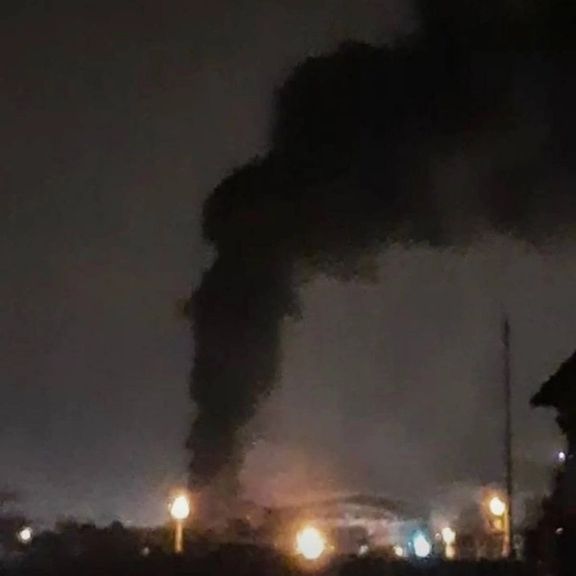
An explosion and a large fire in the Bandar Mahshahr Petrochemical Special Economic Zone in southern Iran have left at least two workers injured.
The blast and the blaze happened in Kavoshgaran Mahshahr petrochemical plant in the port city of Mahshahr in Khuzestan province in the early hours of Friday.
According to a spokesman of the company, Mohsen Adibi, the fire has been contained and the cause of the accident is being investigated.
The CEO of the economic zone, Omid Shahidinia, said a tanker loading a hydrocarbon product caught fire and it spread to other parts of the plant.
In February, the petrochemical company came under attack reportedly by armed men, who set a big fire to a dozen vehicles.
The public relations manager of the firm, Hamid Danesh, told Fars news at the time that “breaking the windows of the security compound, like in this incident, clashing with the security forces of the company and also theft have been among similar cases in recent months."
There have been many explosions and fires in Iran’s military and industrial sites since mid-2020, with authorities not giving a full explanation in many instances. However, they have blamed Israel for a series of spectacular sabotage attacks on nuclear facilities, including two explosions at Natanz uranium enrichment center.
The oil and gas industries have also experienced many incidents of exploding pipelines and refineries where large fires were reported.

In an unprecedented turn of events, many Iranians are urging FIFA to ban their country from the World Cup for forcibly barring women from a match on Tuesday.
#Fifabaniri (FIFA ban Islamic Republic of Iran) and similar hashtags rose to the top of most used hashtags in Persian-language Twitter after security forces Tuesday violently barred women, who had tickets in their hands, from entering the Imam Reza Stadium in the religious city of Mashhad. To disperse women, they pepper sprayed them.
People from every walk of life, including former and current members of Iran's national team and top football clubs, politicians, the exiled Prince Reza Pahlavi, and many ordinary Iranians are pledging not to go to stadiums as long as women are not allowed to enter.
"As a member of the football family, I apologize to women who were held behind the stadium gates in Mashhad. The kind of football we want spreads a red carpet for its [female fans] and doesn't spray pepper at them, Javad Nekounam, former national team coach, said in an Instagram post Thursday which he appears to have removed later under pressure.
"Women should be able to come to stadiums. We are the only country, apart from Afghanistan, that doesn't allow women to enter stadiums. Why is it so?" Alireza Biranvand, a member of the national team, said in an interview with Tarafdari sports website Thursday.
Masih Alinejad, an Iranian activist and campaigner against forced hijab has taken it on herself to spearhead a campaign to ban Iran from competing in the World Cup later this year.
"I call on FIFA to ban the Islamic Republic because we, the women of Iran, are banned from entering stadium for 42 years," she told Daily Mail Wednesday. She argued that FIFA would have been stricter in enforcing its own regulations if Western countries had banned women from entering stadiums. "This is a total betrayal that FIFA do not take a strong action against a gender apartheid regime!" she said.
For nearly a decade the world’s soccer authority has tried to convince the Iran’s government to lift an unwritten, four-decade-old ban on women attending stadiums to watch male players. Iranian officials argue that male football fans swear profanities so the atmosphere of stadiums is not suitable for women even if they are seated in a different part of the stadium.
"FIFA's position … is clear: historic progress has been achieved – as exemplified by the milestone in October 2019, when thousands of women were allowed into the stadium … and more recently when some women were allowed again at the FIFA world Cup qualifier match in Tehran in January – and FIFA expects this to continue, as there can be no turning back," FIFA said in a statement Wednesday.
The ban has led to arrests, beatings, detentions, and abuses against women. In September 2019, a female football fan, Sahar Khodayari, who came to be known as the “Blue Girl” after her favorite team, Esteghlal FC, was reportedly sentenced to jail for trying to enter a stadium disguised as a man. She died by self-immolation, causing a domestic and international outcry.
“Iranian authorities have repeatedly demonstrated they are willing to go to great lengths to enforce their discriminatory and cruel ban on women attending football stadiums,” said Tara Sepehri Far, senior Iran researcher at Human Rights Watch (HRW). “Given Iranian authorities’ longstanding violations, FIFA needs to follow its own global guidelines on non-discrimination and should consider enforcing penalties for Iran’s noncompliance,” she said.